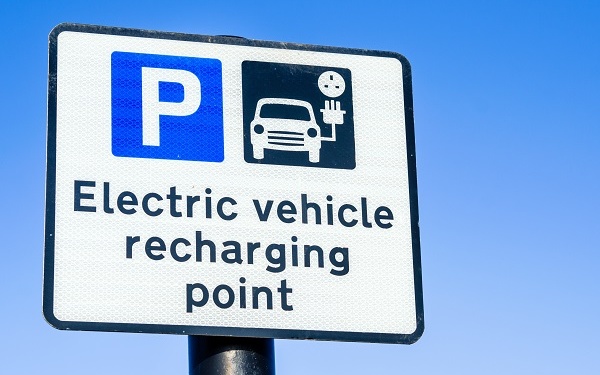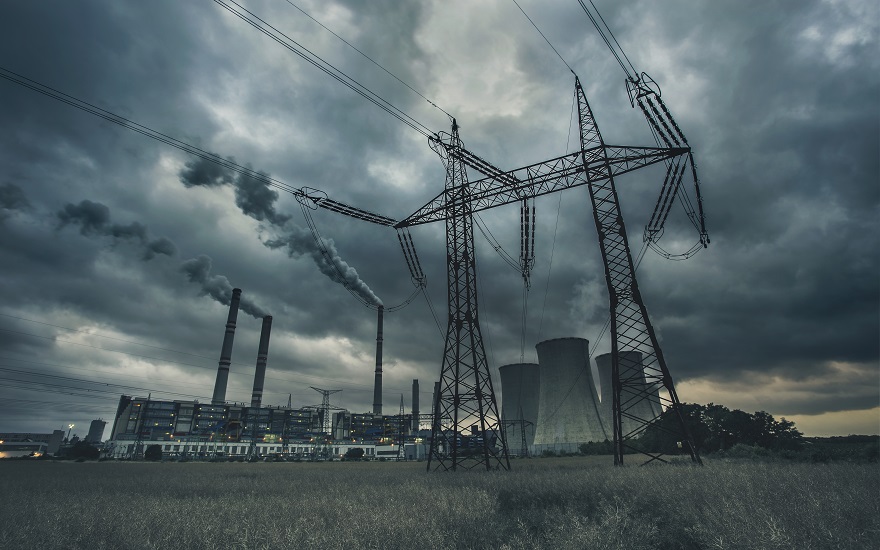A faster transition to electric vehicles and support for hydrogen and wind power form part of new plans to help meet UK’s net zero by 2050 target.
Prime Minster Boris Johnson’s “Green Industrial Revolution” 10-point plan includes a ban on petrol and diesel-powered vehicles by the end of the decade.
It also commits substantial funding to develop cleaner technologies and reduce carbon emissions.
The government is backing the proposals with £12 billion of investment. It claims the plans could support up to 250,000 highly-skilled green jobs.
However, there was no mention of solar power or any explanation of how the electricity network will be upgraded.
Critics also counter that only £4 billion of the funding is new spending and that the total figure is dwarfed by similar commitments from other nations such as Germany (€40 billion) and France (€30 billion).
The plans include a half-billion pound subsidy to develop hydrogen power along with plans to support both a new large-scale nuclear plant – believed to be Sizewell in Suffolk – and several smaller “modular” nuclear reactors.
It also features the previously-announced pledge to boost offshore wind to 40 GW by 2030 and a promise to overhaul domestic heating by installing 600,000 heat pumps a year by 2028.
“Imagine Britain when a Green Industrial Revolution has helped to level up the country.
“You cook breakfast using hydrogen power before getting in your electric car, having charged it overnight from batteries made in the Midlands.
“Around you the air is cleaner; trucks, trains, ships and planes run on hydrogen or synthetic fuel.”
The 10-Point Plan In Full
- Offshore Wind: Produce enough offshore wind to power every home, quadrupling generation to 40 GW by 2030, which has the potential to support up to 60,000 jobs.
- Hydrogen: £500 million to help generate 5 GW of low carbon hydrogen capacity by 2030 for industry, transport, power, and homes, with the aim of developing the first town heated entirely by hydrogen by the end of the decade.
- Nuclear: Up to £525 million funding to advance nuclear power as a clean energy source across large scale nuclear and developing the next generation of small reactors, which could support 10,000 jobs.
- Electric Vehicles: phasing out sales of new petrol and diesel cars and vans by 2030 (and hybrids by 2035) to accelerate the transition to electric vehicles, combined with £1.8 billion investment in national charging infrastructure and grants to encourage the public to buy new EVs.
- Public Transport, Cycling, and Walking: Making cycling and walking more attractive ways to travel and investing in zero-emission public transport.
- Jet Zero and Greener Maritime: Supporting difficult-to-decarbonise industries to become greener through research projects for zero-emission planes and ships.
- Homes and Public Buildings: £1 billion funding in the next year aimed at making homes, schools and hospitals greener, warmer and more energy efficient. Wider plans include a target to install 600,000 heat pumps every year by 2028.
- Carbon Capture: Develop technology to capture and store harmful emissions away from the atmosphere, with a target to remove 10 million tonnes of carbon dioxide by 2030, which would be the equivalent to all emissions of the industrial Humber today.
- Nature: Protecting and restoring our natural environment, including plans to plant 30,000 hectares of trees every year.
- Innovation and Finance: A £1 billion Energy Innovation Fund to help develop cutting-edge technologies making the City of London the global centre of green finance.
Political Reaction To The Net Zero Plans
The Climate Change Committee (CCC), an independent body established to advise UK and devolved governments on emissions targets, “strongly welcomed” the Prime Minister’s plans.
“This [commitment] must now be turned into a detailed road map so we all know what’s coming down the track in the years ahead.
“Our homes, the way we travel, our industries, our land, and all of us individually have a role to play as we strive to lead the world in tackling climate change.
“The good news is we can also reap the rewards – improved health, a stronger economy, a boost for UK jobs and the ability to tell our children and grandchildren that the UK acted in time.”
– Lord Deben, Chairman of the Climate Change Committee (CCC)
The PM’s statement contains a serious set of commitments. If they’re delivered, they’ll take a big chunk off UK emissions over the next decade and beyond.
— Chris Stark (@ChiefExecCCC) November 18, 2020
As ever – the detail needs to follow. But for now, I’m pleased. We should celebrate days like this when we get them.
Unsurprisingly, however, opposition politicians of all colours claimed the plan fell short both in terms of ambition and funding.
Green Party MP Caroline Lucas welcomed some of the specific proposals. However, she warned that the package as a whole was “vague and underpowered”, arguing it “completely fails to rise to the gravity of the moment”.
Climate & nature crises demand bold action
— Caroline Lucas (@CarolineLucas) November 18, 2020
PM’s #10pointplan isn’t it
💰woeful funding – fraction of £27bn roadbuilding
🦋little on nature – peat burning continues
💷nothing to fix broken growth model
It fails to rise to the gravity of this moment
Me for @BBCr4today pic.twitter.com/LnAdW4Hf91
“The funding in this long-awaited announcement doesn’t remotely meet the scale of what is needed to tackle the unemployment emergency and climate emergency we are facing, and pales in comparison to the tens of billions committed by France and Germany.
“That’s why Labour called for the Government to bring forward £30 billion of capital investment over the next 18 months and invest it in low-carbon sectors now as part of a rapid stimulus package to support 400,000 additional jobs.”
– Ed Miliband MP, Labour’s Shadow Business, Energy and Industrial Strategy Secretary
“Their plan not only pledges to continue selling fossil fuel-powered hybrid cars past 2030 but it also extends the Green Homes Grant by just one year.
“To tackle the climate emergency and kickstart a green recovery from Covid-19, we need a long term plan backed by meaningful funding.”
Thoughts From Business And Environmental Organisations
Tanya Steele from environmental organisation WWF-UK gave the proposals a cautious thumbs-up: “The government has fired the starting gun on the action we need to see.
“We now need the Chancellor to live up to the ambition expressed today through a spending review that tests every line of public spending to ensure it’s compatible with meeting our climate goals.”
Greenpeace welcomed “the end of the road for polluting cars”. But the group’s UK Head of Politics Rebecca Newsom claimed many of the ideas were flawed.
She said: “It’s a shame the Prime Minister remains fixated on other speculative solutions, such as nuclear and hydrogen from fossil fuels, that will not be taking us to zero emissions anytime soon, if ever.”
“[This] is nowhere near enough either to manage the commitment to net zero emissions by 2050 or to provide a safe future.
“As we emerge from the Covid-19 pandemic and its impact on our economy, there needs to be an understanding that this is the opportunity to grow our economy in a direction that is fit for purpose in this century.
“We need clarity from the government on the transitional process over the coming decade that would include major investments into promising greenhouse gas removal technologies, and disinvestments from the fossil fuel industry.”
Simon Evans, Policy Editor for the climate science website Carbon Brief, provides an in-depth analysis of the announcements and concludes that while they are “substantial… it alone would not be enough to get the UK to net zero”.
++NEW++
— Simon Evans (@DrSimEvans) November 17, 2020
Boris Johnson 10point UK plan for “green industrial revolution” is out
by 2030
🚗petrol/diesel ban
🌬️40GW offshore
🔋”aim” for 5GW hydrogen
🏭4 CCS clusters
++
⚛️£ for big/small nuclear
🏠heat pump target, retrofit £
++more
Is it a lot? ✅
Enough for net-zero? ❌
1/ pic.twitter.com/GYSUpdIlMj
“The transition to net zero must be measurable, credible and fair. The Prime Minister’s announcement is a step forward on this journey, but more detail and even higher levels of both public and private investment will be needed to ensure that we are able to meet the shared ambition of government and our business communities.
“Decarbonisation remains crucial to our future economic recovery, but businesses will need to see more detail in the long-awaited Energy White Paper if we are to boost investor confidence.”
– Adam Marshall, Director General of the British Chambers of Commerce (BCC)
“It gives a springboard to the huge opportunities for UK-wide investment and green jobs that a true low-carbon economy can bring.
“Some of the proposals that we have seen this week from the UK government, including the phase out date for new petrol, diesel and hybrid vehicles, are undoubtedly challenging.
“The promise of additional funding for the purchase and manufacture of zero emission vehicles, and the roll-out of charge points across the UK are welcome.
“More ambitious policy may be needed to support jobs in sectors such as aerospace and deliver a fair, green transition.”
– Angela McGowan, Northern Ireland Director for the Confederation of British Industry (CBI)




